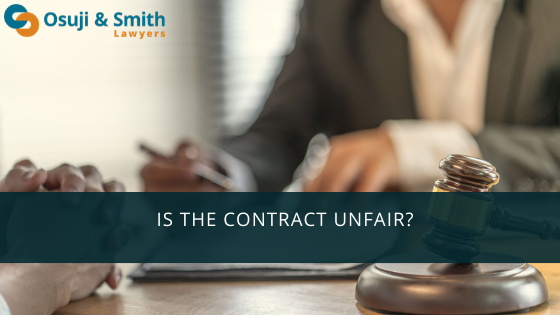 Duress – Focus is on the Consent of the Parties
Duress – Focus is on the Consent of the Parties
The key to duress is the over-bearing of a person’s will – the lack of ability to make a free decision to enter into the contract. The courts take a strict approach and will not allow conduct that borders on the unlawful to corrupt the bargaining process. A contract can be set aside if there is no voluntary consent.
The necessary element to prove duress is the coercion of will. How can one characterize and determine whether or not there has been a coercion of will?
There are four major criteria with a qualifying fifth element. The court will consider:
- Did the party protest at the time?
- The viability of alternatives that were available and open;
- The presence of independent advice; and,
- Whether steps were taken to avoid the contract after entering into it.
Finally, the court will take a principled approach and ask whether or not the duress was justified under the circumstances.
Where duress is found, the court will deem the contract voidable.
- Undue Influence – Focus is on the abuse of trust, confidence, and power where there is a relationship of dominance
Undue Influence is the unconscionable use by a person of power possessed over another at the time of contract formation in order to induce the other to enter a transaction (Earl of Aylesford v Morris 1873).
For example, where a caretaker on whom an elderly person has become dependent on threatens abandonment and, as a result, the elderly person then provides a gift in order for them to stay, the result is the contract is voidable and the court can rescind it (Re Craig 1971).
Undue influence requires some form of oppression, coercion, or abuse of power or authority.
Steps for claiming undue influence: Geffer v Goodman Estate 1991
- Is there a relationship of dependence?
- Is there a manifest disadvantage or undue benefit?
If the above questions are answered in the affirmative, the onus then shifts – the “influencer” must now show that the transaction was entered into as a result of “full free and informed thought”.
Where undue influence is established, the court will deem the contract voidable.
- Unconscionability
Unconscionability focuses on the inequality of bargaining power, the result of which is a substantially unfair deal. A plea that a bargain is unconscionable invokes relief against an unfair advantage gained by an unconscionable use of power by a stronger party against a weaker party (Morrison v Coast Finance 1965).
The focus of unconscionability is on the inequality of bargaining power – Lloyds Bank v Bundy 1974.
Two requirements for unconscionability: Morrison v Coast Finance 1965:
- Gross inequality of bargaining power between the parties; and
- An improvident bargain – a bad deal of which substantial unfairness is the result.
The key question to ask at the end of the test: is the transaction, seen as a whole, sufficiently divergent from community standards of commercial morality such that it should be rescinded (and unconscionability found)? – Harry v Kreutziger 1978.
The person who asserts that the contract is unconscionable must prove it is so on a balance of probabilities. Once they do, a prima facie case is made out and the onus shifts to the defendant to show that an unconscionable act or practice was not committed.
Where an unconscionable contract is established, the court will deem the contract voidable.
Do you feel that you have become a victim of duress, undue influence, or unconscionable contract? Please contact us at Osuji & Smith so that we can assess your situation and provide you with good advice.
Written by Cindy (Yan) Cui.

